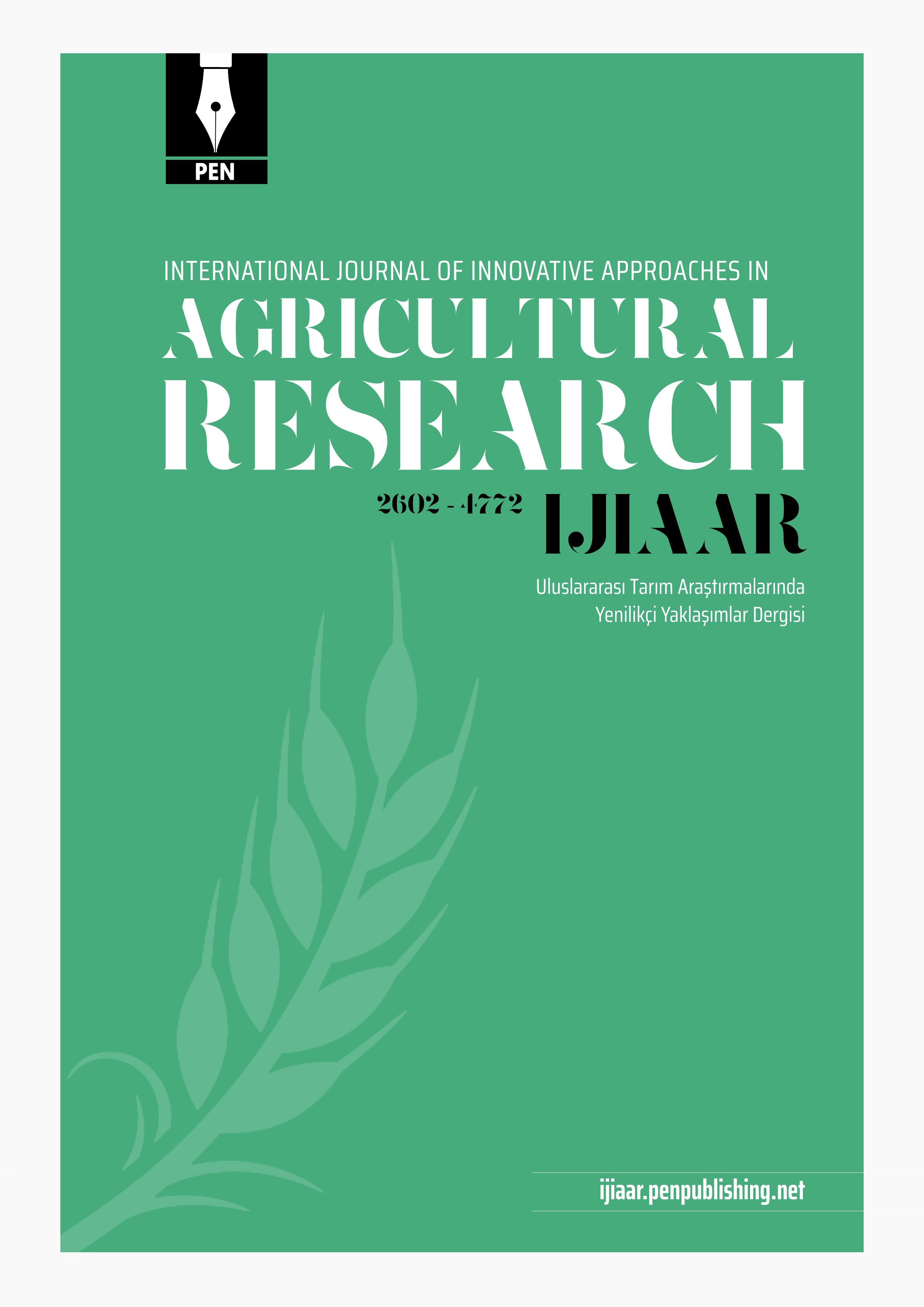
Uluslararası Tarım Araştırmalarında Yenilikçi Yaklaşımlar Dergisi
Yazarlar: Dobre Andov, Danica Andreevska, Trajche Dimitrovski, Emilija Simeonovska, Halil Sürek, Necmi Beşer , Jashka Ibraimi
Konular:-
DOI:10.29329/ijiaar.2019.206.4
Anahtar Kelimeler:Rice,Milling fractions,Yield,Paddy,White rice,Turkish varieties
Özet: The paddy rice yield, milling fractions (head rice yield, brokens, bran and hulls) and white rice yield were examined in the newly introduced Turkish varieties: Efe, Hamzadere, Çakmak and Tunca grown under typical rice producing conditions of North Macedonia during 2013 and 2014, compared to standard variety San Andrea. The field trials were set up in randomized complete block design. The results were analyzed by ANOVA and LSD test. The new varieties showed higher paddy rice yield in both years, with average values ranging from 9365.39 kg/ha in Efe to 10704.02 kg/ha in Tunca compared to San Andrea (8784.40 kg/ha). San Andrea was characterized with the highest fluctuation in head rice yield and the lowest average (38.30 %). All Turkish varieties showed more stable and higher average head rice yield. Efe had the highest value by year and the highest average (56.15 %). The white rice yield in the new varieties was higher in both years, with average values of 4420.66 kg/ha in Hamzadere to 5351.65 kg/ha in Tunca, compared to San Andrea, where the lowest average of 3276.12 kg/ha and the highest fluctuation was obtained. Significant differences for the paddy and white rice yield and the head rice yield were obtained in both years. The new varieties showed promising results regarding the head rice yield and white rice yield, which is problematic and unstable in the prevalent rice varieties in the rice production of North Macedonia.